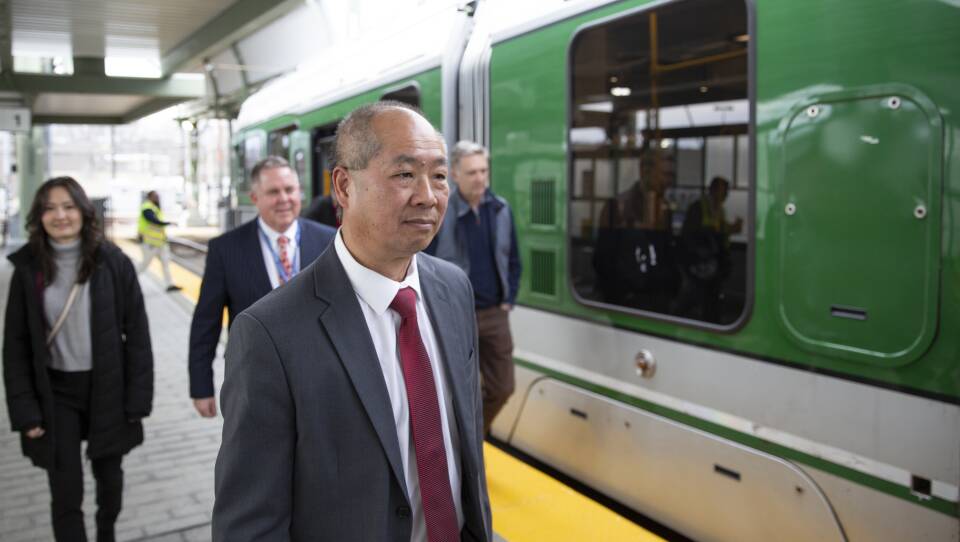Phillip Eng started his new role as general manager of the MBTA Monday with a short ride on the Green Line. Eng, the former president of the MTA’s Long Island Rail Road in New York, rode from Park Street to Boylston and spoke with T riders about their experience with the transit system.
“To the people who have lost faith in the T, I tell them, ‘Stay tuned,’” he said. “I’m gonna demonstrate we can turn it around. We’re gonna talk about the issues openly. Once they start to hear the plan and we put that plan on paper, publicly share it, people will see that we have a strategy.”
Advocates like Jim Aloisi, the former Massachusetts transportation secretary, and Stacy Thompson, executive director of Livable Streets Alliance, are hopeful that Eng’s vision will harden into concrete actions and benchmarks — ones that will be shared with the public.
“I think he did a good job today just by riding the T and, you know, making himself available,” Aloisi said on Boston Public Radio Monday.
Aloisi praised Eng for effectively presenting a “vision” but said he needs to put forward a more detailed and transparent strategy for eliminating the issue of slow subway lines. The former Massachusetts transportation secretary said he would like to see Eng develop a plan by Labor Day with clear deadlines for when the MBTA’s slow zones will be eliminated.
One major problem the MBTA has yet to solve: staffing. The agency reduced service after an initial safety report that the Federal Transit Administration issued last year that found that the MBTA was understaffed and dangerously overworked. It’s launched several hiring initiatives to try to attract workers to jobs with dire shortages to take work operating buses and dispatching the subways.
“There are three things [Eng] knows he needs to do on day one ... that’s hiring, money, diversions. We know we have to continue with the diversions with repairs over the summer,” Thompson added. “The public wants to know when they’re gonna happen, how they’re gonna happen.”
Another report from Massachusetts Taxpayers Foundation also identified the shortage of staff as the T biggest’s concern.
“We need to hire enough bus operators that, by September, we’re running more service,” Thompson said. “It’s that simple.”
The MBTA is also currently executing a Capital Investment Plan that went into effect in summer 2022, laying out major projects for the next five years. Some of the projects Aloisi says are priorities for the still-new Gov. Maura Healey, like investing in regional rail, funding for the MBTA’s Red-Blue line connector and electrifying the Fairmount and Providence lines, can’t be found in that plan.
“[We] have in real-time, right now, this month, public hearings on the MBTA’s Capital Investment Plan,” Aloisi said. “That is a Charlie Baker legacy plan. It does not reflect, in my judgment, the full amplitude of the Healey administration’s policies.”
Some may have lost faith in the MBTA but Thompson believes there’s still hope. She thinks that Eng’s “fixer” attitude will make ideas, such as hiring more skilled staff, a reality.
“I liked the optimism in Eng’s message today ... because everything single one of these challenges is fixable,” she said. “These are not actually hard.”








